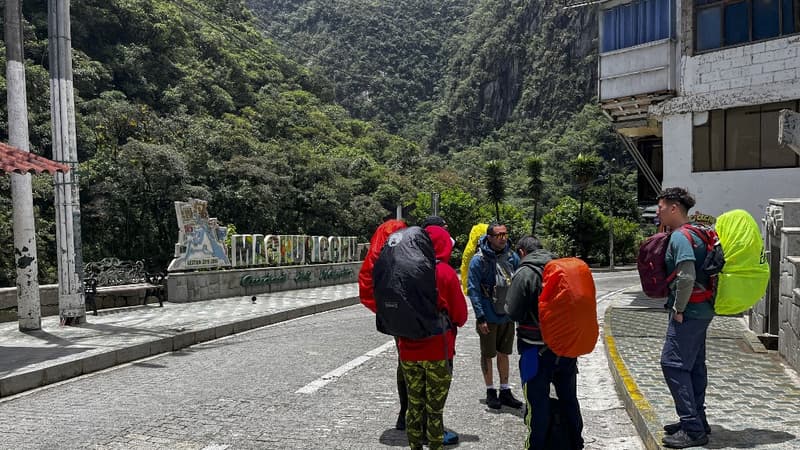The crisis continues in Peru. Some 400 tourists stranded at the foot of Machu Picchu due to unrest in the country were evacuated on Saturday by authorities who closed the famous Inca tourist site.
“This afternoon, 418 national (Peruvian) and foreign tourists were transferred from the town of Machu Picchu to Cuzco,” the imperial Inca and tourist capital of Peru, the Ministry of Tourism announced on Twitter.
The ministry released a photo of the train that connects the two cities and another of the tourists inside. Other than walking, the train is the only way to reach this tourist gem. Piscacucho is the closest town connected to the road network.
The tourists had been stranded for several days when protesters damaged the tracks. Tourists, of all nationalities, had registered on Friday ready in Aguas Calientes to be evacuated.
site closure
On Saturday morning, the authorities announced “the closure of the Inca trail network (land access, Inca Trail) and the Llaqta (citadel) of Machu Picchu (…) due to the social situation and to preserve the safety of visitors,” according to a press release from the Ministry of Culture.
In December, some 300 tourists had already been stranded at Machu Picchu before being evacuated by a special train with railway workers to repair the track, supervised by the police.
Tourism, vital for the economy, represents between 3 and 4% of GDP and provides employment for all strata of the population.
46 dead since the beginning of the movement
The morning was afflicted by a new death, a protester who died from injuries received on Friday during clashes between police and protesters in Ilave, in the Puno region (south, near Bolivia).
This brings the death toll to 46 since December 7 and the start of protests demanding the resignation of President Dina Boluarte, the dissolution of Parliament and the constitution of a Constituent Assembly. In addition, 772 people were injured, according to the Mediator of the French Republic.
The riots began after the dismissal and arrest of the left-wing president Pedro Castillo, accused of having attempted a coup by wanting to dissolve the Parliament that was about to remove him from power.
The European Union on Saturday condemned the violence and the “disproportionate” use of force by police.
“The EU calls on the government (…) to ensure an inclusive dialogue with the participation of civil society and affected communities,” the statement said.
The crisis is also a reflection of the huge gap between the capital and the impoverished provinces that supported President Castillo, of indigenous descent, and saw in his election revenge for what they see as contempt for the capital.
Source: BFM TV


